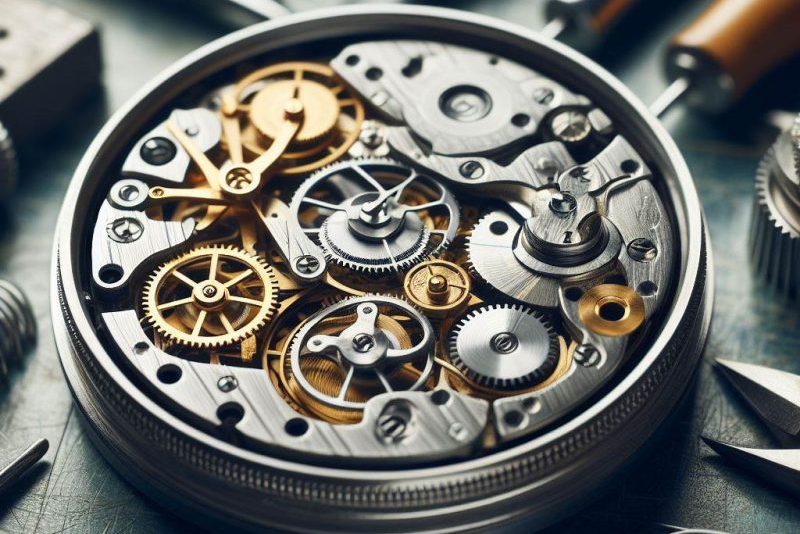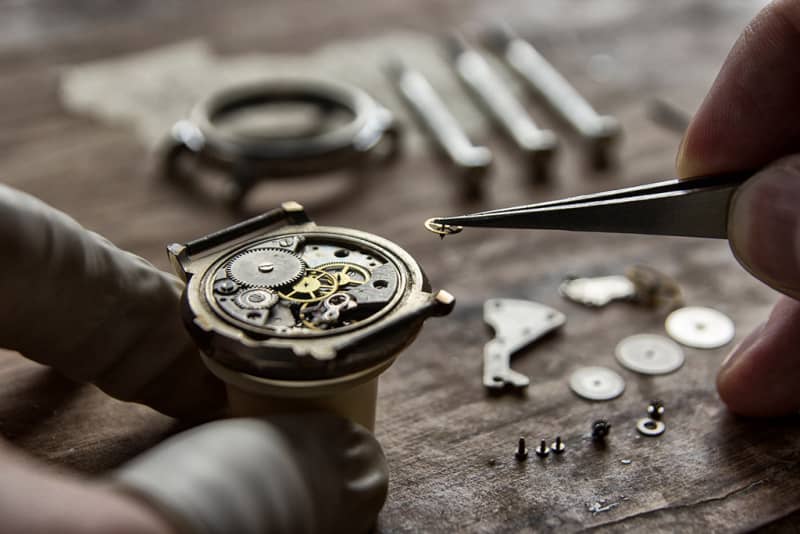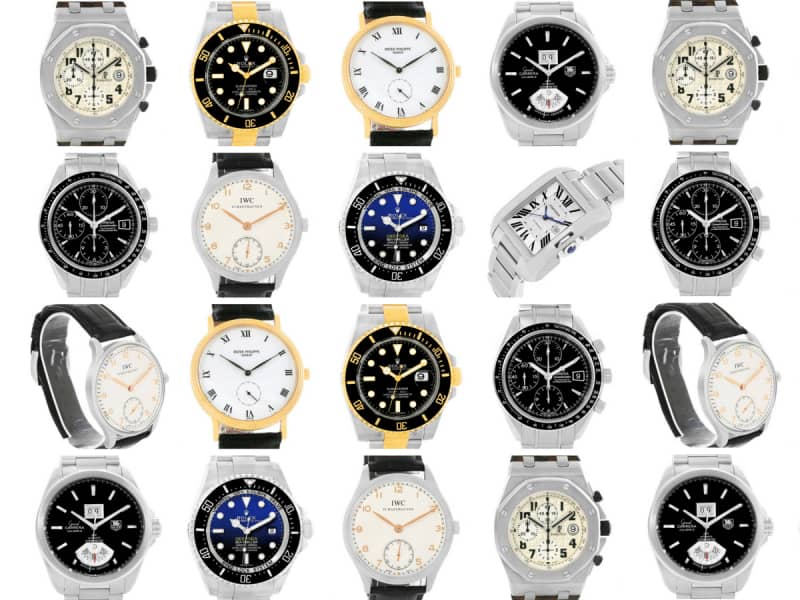Watches are delicate pieces of jewelry, so it is no surprise that watch surfaces can get scratched easily.
If you own a watch or work in a watch repair business, learning how to remove and prevent scratches can save time and money.
Let’s take a look at why watches get scratched, how to prevent them, and what treatments are available when they do occur.

When it comes to watches, scratches often come from everyday activities like cleaning your hands in the sink or taking off your shirt.
Even something as simple as putting on lotion can cause tiny scratches on the surface of your watch if you’re not careful.
Other causes of scratched watch surfaces include accidental impacts with hard surfaces or rubbing against another material like metal or stone.
Here are some of the specific reasons why your watches have scratches:
Watches are small and delicate, making them vulnerable to accidental contact with other surfaces.
This is especially true of harder surfaces like rocks or metal.
Taking off your watches needs to be done with care.
Put too much pressure on the watch, and you risk scratching the surface!
When cleaning your watches, be sure to use a soft cloth or special cleaning liquid made for watches. Avoid using abrasive materials as they can cause scratches on the surface of the watch.
Sweat buildup on the surface of your watch can also cause scratches. Make sure to clean your watches regularly to avoid this problem.
This is because sweat can act as an abrasive, causing microscopic scratches on the surface.
Loose screws or pins on the back of your watches can lead to scratches if they rub against other surfaces. Regularly check for loose screws and pins to avoid this problem.
Lint and dust particles can get stuck on the surface of your watch and cause scratches. Make sure to clean your watches regularly to remove any lint and dust particles.
Storing your watches properly is also important to avoid scratches. Make sure that the watch is kept in a soft, dust-free environment when not in use.
Now that you know why watches get scratched, let’s talk about how to prevent them and which treatments are available for when they do occur.

Preventing scratches on your watch is relatively easy; all you have to do is be mindful about where you wear it and what activities you engage in while wearing it.
Avoid harsh chemicals such as bleach when cleaning your hands because they will damage the surface of your watch over time.
Chemicals such as these can cause discoloration and tarnish on the surface of your watch.
When taking off and putting on your watch, take extra care to avoid scratching the surface. This means being mindful of how you do it and not pulling or pushing too hard on the clasp.
When not wearing your watch, store it in a soft, dust-free environment such as a jewelry box or watch case.
This will help protect the surface of the watch from scratches caused by lint and dust particles.
Avoid any contact with hard surfaces that could scratch up the surface of your watch. Surfaces like rocks, metal, and concrete should be avoided when possible.
These are just a few of the ways in which you can help protect your watches from scratches. With a little bit of extra care, your watches should stay looking as good as new for years to come!

If you have a severely scratched-up watch face, there are a few options available to restore its former glory.
The first option is buffing out scratches with high-grade polishing paste – this method works best for light scratches and gives excellent results without damaging other parts of the watch face.
If there are deep scratches present, then professional polishing machines may be needed for more effective results.
If none of these methods work then consider replacing the entire faceplate with a new one – although this should only be done by an experienced professional as it requires precision workmanship and intricate knowledge about how watches operate internally.
Plus, replacing the faceplate can be quite costly.
Finally, there are some craftspeople who specialize in restoring scratched watches. They have the skill and expertise to bring back your watch to its former glory – albeit at a cost.
It’s important to remember that prevention is better than cure when it comes to scratches on your watch.
Keep the above points in mind and you should be able to keep your watches looking as good as new for years to come!
No matter what method you use, it’s important to treat your watch with care to avoid any further damage.
Scratched watches can be an eyesore but luckily there are ways to both prevent them from occurring and treat them once they do happen!
The key takeaway here is that prevention is better than cure; be mindful about where you wear your watch and what activities you engage in while wearing it so as not to cause damage over time!
Additionally, if worse comes to worst then consider professionally buffing out light scratches or replacing heavily damaged faces altogether – either way, make sure to get help from experienced professionals who know exactly what they’re doing when working with delicate materials like those used in watches!
Good luck!
The intricate mechanism of each watch is a work of art. Every luxury watch has its level of craftsmanship and quality. Each is created artistically by expert watchmakers making the timepiece have an elegant design and accurate timekeeping. But, luxury watch collectors prefer mechanical or automatic movements. Let yourself fall into one of the types of a watch movement and share your ideas below if you have different insight!

Copyright © 2018 Sofly Limited



Leave a Reply
Your email address will not be published. Required fields are marked *